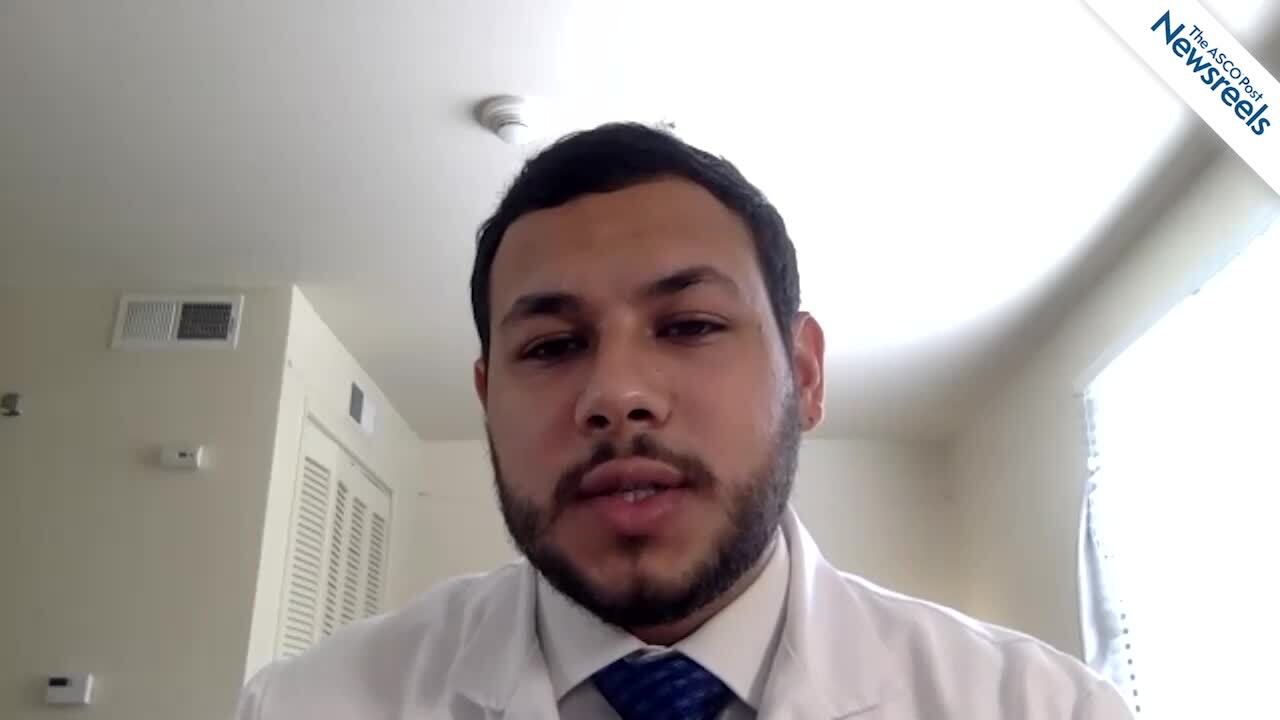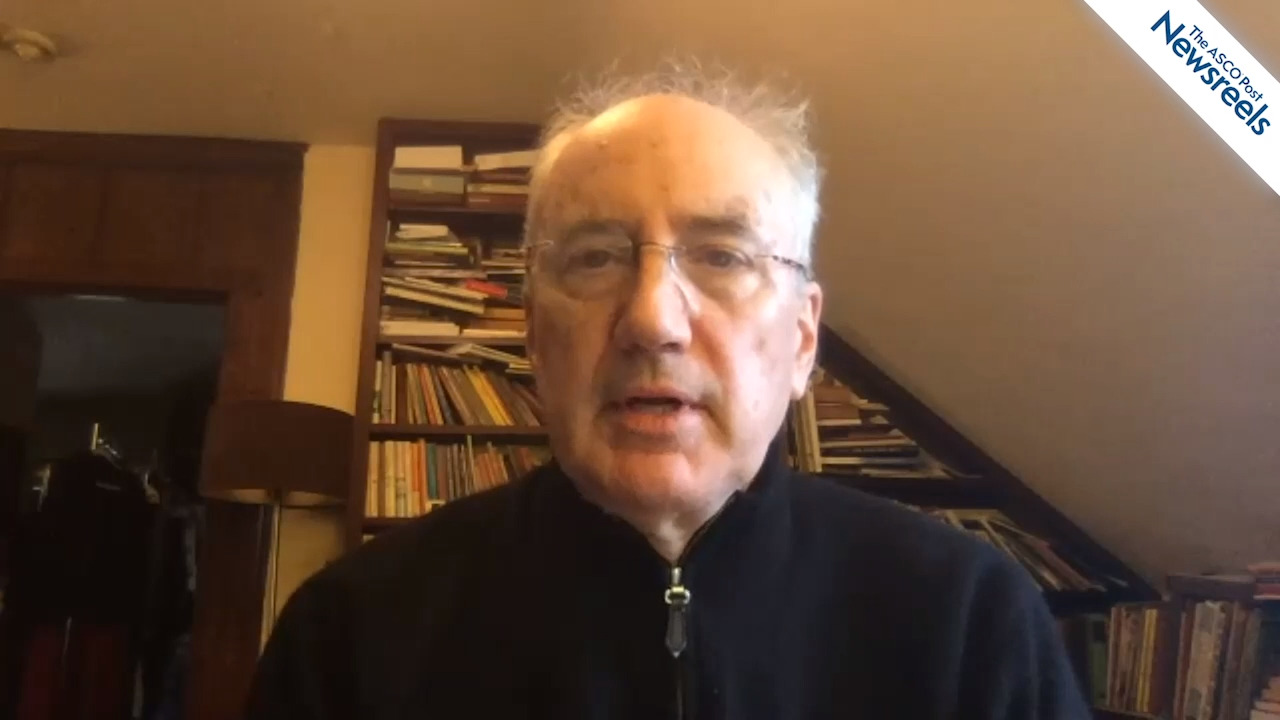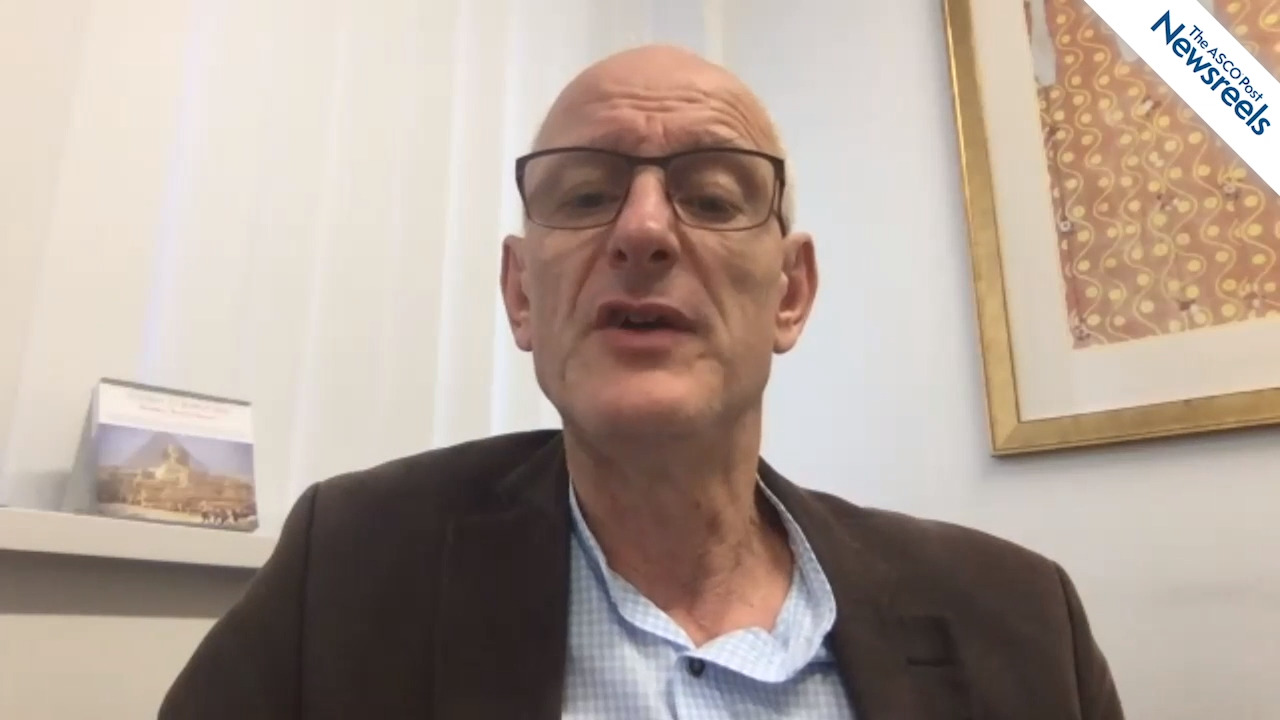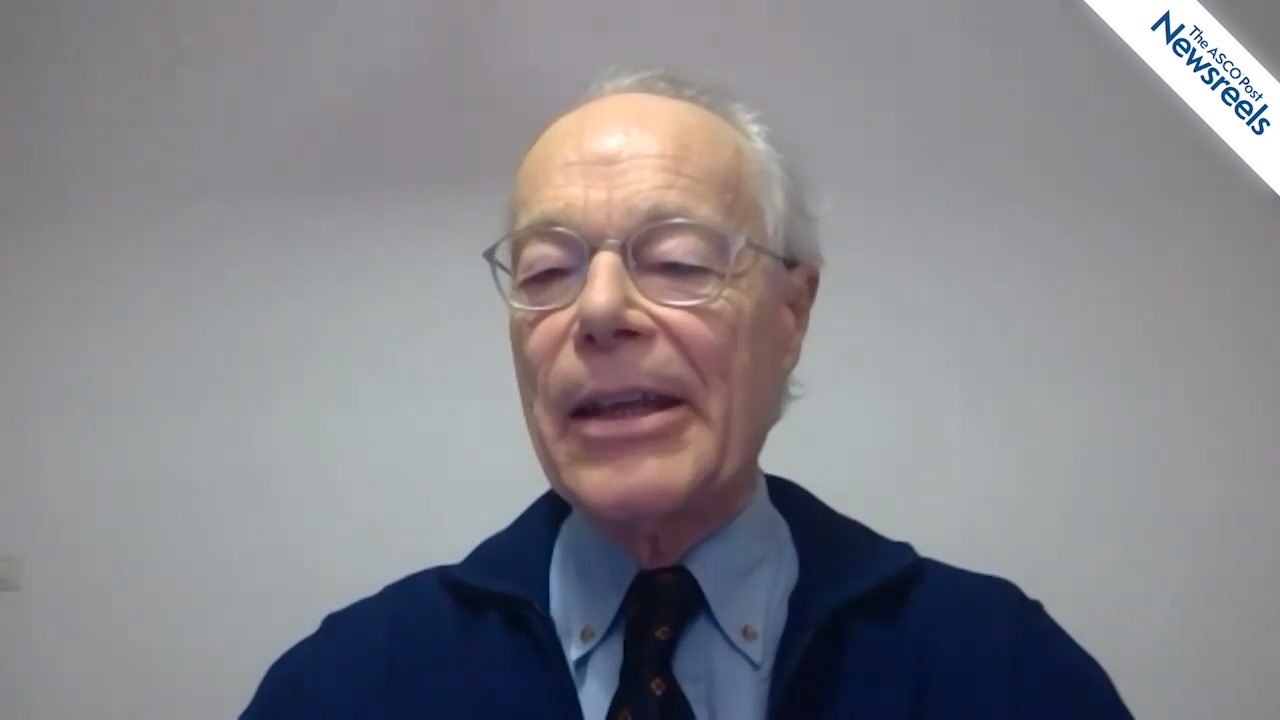Emily Hinchcliff, MD, MPH, on Treating Non–Clear Cell Ovarian Cancer With Durvalumab and Tremelimumab
SGO 2021 Virtual Annual Meeting on Womens Cancer
Emily Hinchcliff, MD, MPH, of The University of Texas MD Anderson Cancer Center, discusses phase II results of durvalumab (anti–PD-L1) and tremelimumab (anti–CTLA-4) administered in combination vs sequentially for the treatment of recurrent platinum-resistant non–clear cell ovarian cancer (ID #10240).
The ASCO Post Staff
Morcos N. Nakhla, MS, a second-year student at the David Geffen School of Medicine at UCLA, discusses data showing that a higher surgical volume is associated with better outcomes for frail patients undergoing surgery for ovarian cancer. Over the 12-year study period, mortality decreased for all women with ovarian cancer, despite a concurrent increase in frail patients (ID #10209).
The ASCO Post Staff
Edward L. Trimble, MD, MPH, of the National Cancer Institute, discusses the World Health Organization’s global strategy to speed the elimination of cervical cancer through vaccination, screening, treatment, and training for multidisciplinary teams in gynecologic oncology care. This marks the first time that 194 countries have committed to such an effort (ID # 10203).
The ASCO Post Staff
Andreas Obermair, MD, of the University of Queensland and Queensland Centre for Gynaecological Cancer Research, discusses data on a hormonal IUD used to treat women with the precursor lesion endometrial hyperplasia with atypia (EHA) and those with stage I endometrial adenocarcinoma (EAC). At 6 months, the data showed a complete pathologic response in 82% of patients with EHA and in 43% of those with EAC (ID# 10244).
The ASCO Post Staff
Eric Pujade-Lauraine, MD, PhD, of Hôpital Hôtel-Dieu, discusses results from the PAOLA-1ENGOT-ov25 trial on the use of homologous recombination–repair mutation gene panels and whether they can predict the efficacy of olaparib plus bevacizumab in first-line maintenance therapy for patients with ovarian cancer (ID# 10224).
The ASCO Post Staff
Shannon N. Westin, MD, of The University of Texas MD Anderson Cancer Center, discusses phase II results from the ENPAC trial, which showed the combination of enzalutamide, paclitaxel, and carboplatin yielded promising clinical outcomes in chemotherapy-naive advanced or recurrent endometrioid cancer (ID # 10244).





